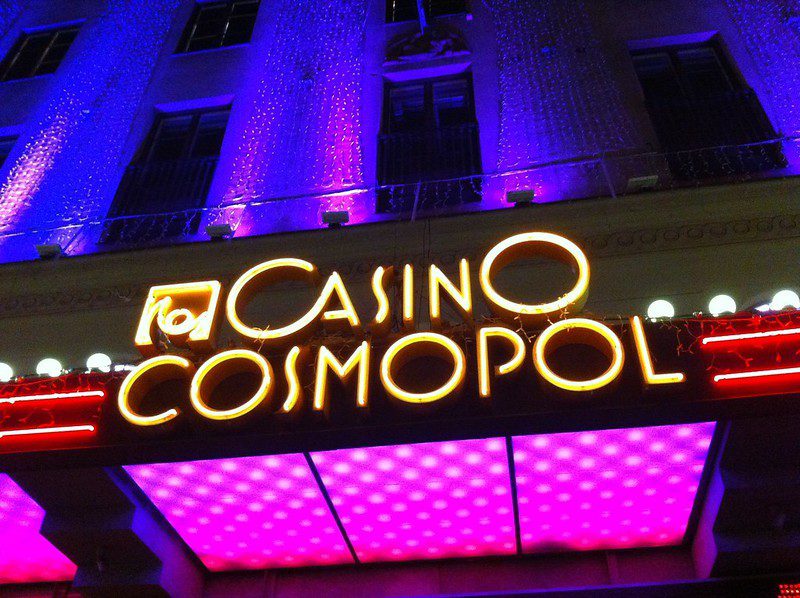I have no proof the Nevada Gaming Commission acted intentionally when it disclosed confidential information during its May 23 meeting by naming the Fontainebleau Las Vegas in an ongoing Gaming Control Board money laundering investigation.
I can only hope it did.
Although the disclosure surely made longtime gaming industry attorneys cluck about the rule of law and the importance of protecting Nevada’s well-marketed “gold standard” of casino regulation, the fact is casinos up and down the Strip have been mired in a self-inflicted scandal. It continues to play out as the old story of illegal bookies laundering their profits as comp-privileged high rollers, giving way to new questions of what other casinos might have been aware of the illegality but let it ride in the name of the bottom line and a long tradition of plausible deniability.
Although less well advertised, it’s also important to note that the investigation that has brought this regulatory mess to light began not in Nevada, but in the California offices of IRS Criminal Investigation and U.S. Homeland Security Investigations. It is being prosecuted by the U.S. Attorney’s Office in the Central District of California.
That’s why the accidental disclosure and the meeting itself ought to be remembered as an inflection point for the industry before the sting of the candor fades and is replaced by a new shiny object.
Casino compliance is easy to ridicule when it fails, but it is a substantial undertaking and an essential part of the gaming corporate structure. It not only helps keep operators on the rails legally, but I believe regulatory rigor and an adherence to anti-money laundering guidelines have played a big role in the expansion of legalized gaming across the globe. Following the tenets of the Financial Crimes Enforcement Network (FinCEN) is not only smart business, but it’s also a winning marketing message.
After all, casinos want to be known for their razzle-dazzle, not for catering to offshore bookmaking operations and drug cartels, right?
As it’s understood so far, the tale of the illegal bookies lounging and laundering in Las Vegas is an old one. Compared to high rollers splashing the tables with the proceeds of Ponzi schemes, Chinese bank frauds and the endless millions generated by the sons of Sinaloa, these guys seem downright docile.
They were so comfortable, in fact, they didn’t even bother to hide in plain sight.
Wayne Nix, Mathew Bowyer, and Damien Leforbes have all pleaded guilty and are awaiting sentencing. As I’ve reported, the ongoing investigation led to a number of other longtime illegal bookmakers considered good casino customers 86’d from Strip casinos without being charged.
Bowyer, notorious for booking millions from the former translator of Dodgers star Shohei Ohtani, faces as many as 18 years for his conviction on illegal gambling, false tax returns and money laundering charges. He has seen his sentencing date moved from April to Oct. 3, and he sounds like he’s tired of waiting.
He tells USA Today’s Bob Nightengale, “I would have preferred to get this over with, man. I know people have told me the longer the delay, the better for sentencing. It’s just the anxiety of the unknown that sucks. I feel like I’m in a pickle between second and third base, but closer to second base.”
Why they’ve yet to be sentenced raises new questions about the status of the case itself. For his part, Leforbes is known to have sought and received credit in multiple Strip casinos, including The Venetian and The Palazzo, after he was identified publicly as a suspect in an illegal gambling and money laundering investigation.
That kind of knowledge is what led to the ouster of longtime casino executive Scott Sibella from the casino industry. And the bitter Sibella makes no secret that other corporate suits had full knowledge of their problematic players’ backgrounds.
Which leads us back to the commission’s May 23 meeting. Led by Commission Chair Jennifer Togliatti, commissioners moved methodically through a long agenda with a couple of stops along the way to ask intriguing questions to executives Daniel Ruiz of The Venetian and The Palazzo and Maurice Wooden of Fontainebleau Las Vegas. Both men’s applications were approved, and the questioning wasn’t contentious.
But the discussion was revealing.
Prior to coming to The Venetian and The Palazzo as its head of gaming operations, Ruiz was a senior vice president of casino marketing at The Cosmopolitan during the time Nix was gambling there, letting it be known what he did for a living. The Cosmo, operated by MGM Grand, in January 2024 agreed to pay $1 million as part of a federal non-prosecution agreement to resolve an investigation into possible violations of anti-money laundering laws under the Bank Secrecy Act.
Without directly pointing a finger at Ruiz, commissioner and former Las Vegas Sands executive George Markantonis offered him some interesting words of advice.
“There’s a huge responsibility in our hiring practices. How we hire, who we hire,” Markantonis said. “There have been instances when many casino hosts in this city, and I’m not saying something that’s new news, have run afoul of this commission and the Gaming Control Board by maybe perhaps pure ignorance of the compliance laws. And there can’t be such a thing as ignorance. There’s no such thing as I didn’t know. That does not pass muster anymore.”
That includes hiring practices for marketing hosts who were happy to cater to illegal gamblers such as Nix, Bowyer and Leforbes.
“Hopefully you will spread the word that we have had internal discussions many times as a commission and as a regulatory body, that when people misperform at any properties and then they are let loose again in the communities, the communities of our resorts, to get rehired, when background checks are not conducted properly or background checks are ignored,” Markantonis said. “So, that’s another big responsibility for a chief gaming officer to keep an eye on. This is purely meant as advice knowing what’s happening on the commission, but I’m sure that you and your team will be watching that carefully as we go forward.”
He then wished Ruiz good luck. But, you know, I think Markantonis was trying to send a message.
Other commissioners, including Abbi Silver and Rosa Solis-Rainey, also showed they were mindful of the controversies that splashed close to Ruiz and Wooden, whose former tenure as a Wynn Resorts executive found him in close proximity to a withering federal currency transfer investigation and the creepy Steve Wynn sexual misconduct scandal.
The meeting included the coda on a $5.5 million fine against Wynn Las Vegas LLC for a decade-old incident associated with improper money transfers. The company previously signed a federal non-prosecution agreement and agreed to forfeit $130.1 million to the U.S. Department of Justice. Wooden was president of Wynn at the time the improper money transfers took place.
With longtime gaming attorney Dan Reaser walking point on Wooden’s behalf, the commission was reminded, “Mr. Wooden followed procedure, and somebody overrode him following procedure.”
Wooden also denied knowing anything about a control board money laundering investigation.
Solis-Rainey made a point of pressing Wooden about the lack of pushback against Steve Wynn’s improper conduct inside the resort. And Togliatti pointed out, “If he hadn’t been the president of the Wynn, when all of those things were happening in our discipline later today, we wouldn’t be having this conversation.”
Who knows, maybe they were sending Wooden a message.
Getting regulatory religion is admirable, but it comes at an awkward time for the competitive Las Vegas casino market. With visitation down and international travel buffeted by the chaos coming from the White House, the fight for good customers only figures to get more intense.
Surely some people are waiting for this latest scandal to pass. When it does, they’ll be tempted to take it as a sign that the coast is clear, and it’s time to get back to business as usual as practiced in Las Vegas.
I’m not so optimistic that I believe Las Vegas will ever change. At this point, I’d settle for a few more confidential disclosures.
John L. Smith is an author and longtime columnist. He was born in Henderson and his family’s Nevada roots go back to 1881. His stories have appeared in New Lines, Time, Readers Digest, Rolling Stone, The Daily Beast, Reuters and Desert Companion, among others.





